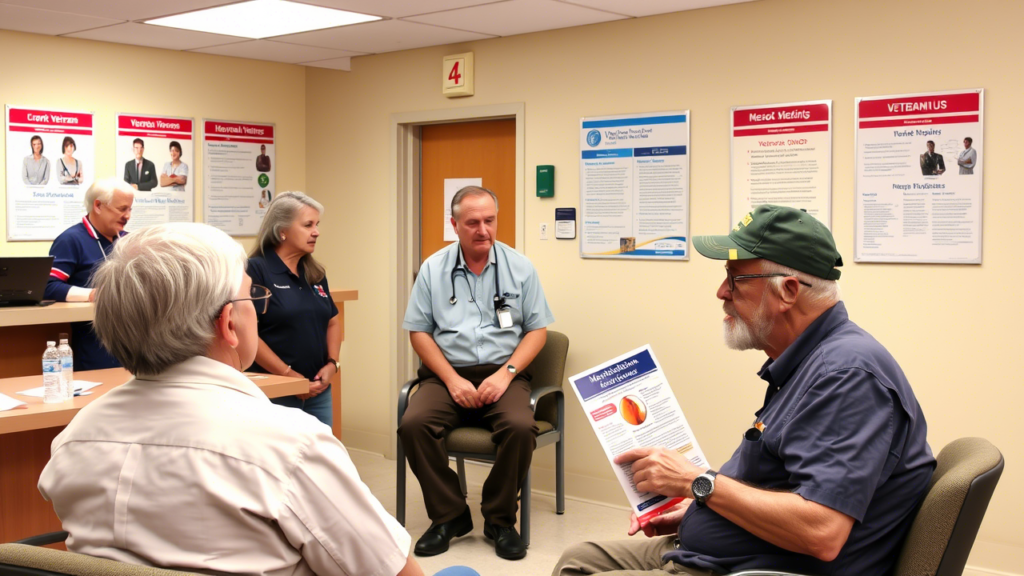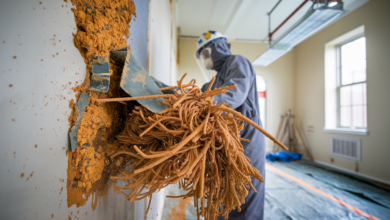Introduction to Mesothelioma Symptoms in Veterans

Veterans make up approximately one-third of all mesothelioma cases in the United States due to their extensive exposure to asbestos during their service years. Understanding the unique circumstances surrounding mesothelioma in this population is crucial for early detection, effective treatment, and improved quality of life.
What Is Mesothelioma?
Mesothelioma is a type of cancer that develops in the lining of certain organs, most commonly the lungs (pleural mesothelioma), abdomen (peritoneal mesothelioma), or heart (pericardial mesothelioma). It is caused almost exclusively by inhaling or ingesting microscopic asbestos fibers, which become lodged in the body’s tissues and cause inflammation over time.
- Pleural Mesothelioma: Accounts for about 75% of all cases and affects the lining of the lungs.
- Peritoneal Mesothelioma: Occurs in the abdominal cavity and represents roughly 20% of cases.
- Pericardial Mesothelioma: Affects the lining around the heart and is extremely rare, accounting for less than 1% of cases.
The latency period for mesothelioma can range from 20 to 50 years, meaning symptoms may not appear until decades after initial exposure to asbestos. This delayed onset often complicates diagnosis and underscores the importance of vigilance among high-risk groups like veterans.
Asbestos Exposure in Military Service

During much of the 20th century, asbestos was considered an ideal material for its heat resistance, durability, and affordability. As a result, it was extensively used in various branches of the U.S. military:
- Navy: Ships were heavily insulated with asbestos-containing materials, exposing sailors and shipyard workers daily.
- Army: Barracks, vehicles, and equipment frequently contained asbestos components.
- Air Force: Aircraft brakes, gaskets, and other parts relied on asbestos for performance under extreme conditions.
- Marine Corps: Similar risks existed across all areas where asbestos products were utilized.
While regulations limiting asbestos use began emerging in the late 1970s, many veterans had already experienced significant exposure throughout their careers. Consequently, they remain vulnerable to developing mesothelioma later in life.
Common Mesothelioma Symptoms in Veterans
Recognizing the signs of mesothelioma early is critical for timely intervention. However, because these symptoms often mimic more common illnesses such as pneumonia or bronchitis, misdiagnosis is frequent. Below are some key indicators to watch for:
Pleural Mesothelioma Symptoms
- Shortness of breath (dyspnea)
- Chest pain or discomfort
- Dry cough or wheezing
- Fatigue and weakness
- Unexplained weight loss
- Swelling of the face or arms
Peritoneal Mesothelioma Symptoms
- Abdominal pain or swelling
- Nausea and vomiting
- Bowel obstruction
- Loss of appetite
- Fluid buildup in the abdomen (ascites)
Pericardial Mesothelioma Symptoms
- Heart palpitations or irregular heartbeat
- Chest pain radiating to the back or shoulders
- Difficulty breathing, especially while lying down
- Chronic fatigue
If any of these symptoms persist, especially in combination, it is essential to consult a healthcare professional immediately, particularly if there is a history of asbestos exposure.
Diagnosing Mesothelioma in Veterans
Diagnosing mesothelioma involves several steps, starting with a thorough medical history review to identify potential asbestos exposure. Diagnostic tools include:
- Imaging Tests: X-rays, CT scans, MRIs, and PET scans help visualize abnormalities in the affected areas.
- Biopsy: Tissue samples are taken for laboratory analysis to confirm the presence of malignant cells.
- Blood Tests: Biomarkers such as soluble mesothelin-related peptides (SMRPs) can aid in detecting mesothelioma.
For veterans seeking care through the Department of Veterans Affairs (VA), specialized centers equipped to handle complex cases of mesothelioma are available. These facilities offer multidisciplinary teams comprising oncologists, pulmonologists, radiologists, and surgeons dedicated to providing comprehensive care.
Treatment Options for Veterans with Mesothelioma

Although mesothelioma remains incurable, advances in medicine have led to better outcomes for patients. Treatment plans typically depend on factors such as tumor location, stage, patient age, and overall health. Common approaches include:
Surgery
Surgical interventions aim to remove as much of the cancerous tissue as possible. Procedures like extrapleural pneumonectomy (EPP) or pleurectomy/decortication (P/D) are sometimes employed for pleural mesothelioma.
Chemotherapy
Chemotherapy drugs target rapidly dividing cancer cells, slowing disease progression. Combinations of pemetrexed and cisplatin are standard regimens for mesothelioma.
Radiation Therapy
High-energy beams destroy cancer cells while sparing healthy ones. Radiation therapy is often used alongside surgery or chemotherapy to enhance effectiveness.
Emerging Treatments
Immunotherapy and gene therapy represent promising new frontiers in treating mesothelioma. Clinical trials continue exploring innovative strategies tailored specifically for this challenging disease.
VA Benefits and Support Resources for Veterans
The VA recognizes mesothelioma as a service-connected disability for eligible veterans who can prove asbestos exposure occurred during active duty. Benefits available include:
- Healthcare Services: Access to top-tier medical facilities specializing in mesothelioma treatment.
- Disability Compensation: Monthly payments based on severity of condition and impact on daily living.
- Pension Programs: Financial assistance for low-income veterans unable to work due to illness.
- Counseling and Support Groups: Emotional support networks addressing mental health needs.
In addition to VA offerings, nonprofit organizations such as the Mesothelioma Applied Research Foundation provide valuable information, advocacy, and funding opportunities for research initiatives.
Prevention and Awareness Efforts
While preventing mesothelioma entirely is impossible once asbestos exposure has occurred, raising awareness about its dangers remains vital. Educating both current and retired service members about safe handling practices, proper disposal procedures, and monitoring for symptoms can mitigate future risks.
Legislation banning asbestos usage continues gaining traction worldwide, reflecting growing recognition of its harmful effects. Advocacy efforts also focus on securing justice for victims wrongfully exposed through negligence or corporate malfeasance.
Conclusion
Mesothelioma poses a significant threat to veterans whose sacrifices safeguarded our nation. By staying informed about symptoms, pursuing timely diagnoses, leveraging available treatments, and accessing supportive resources, we honor their legacy while improving chances for survival and comfort. Together, let us ensure no hero faces this battle alone.




